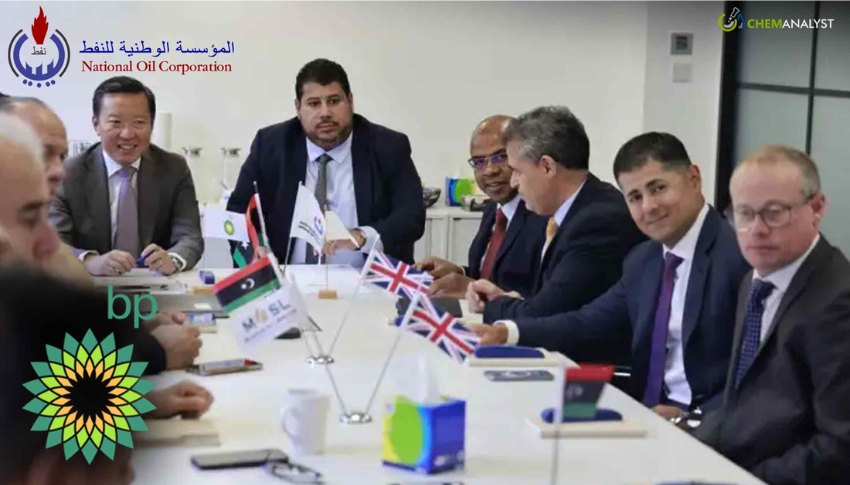Welcome To ChemAnalyst

MoU will explore redevelopment opportunities in the mature Sarir and Messla oilfields and assess unconventional oil and gas potential in Libya.
Global energy major bp has signed a crucial Memorandum of Understanding (MoU) with Libya's National Oil Corporation (NOC), signaling a significant step towards evaluating redevelopment opportunities in the mature, giant Sarir and Messla oilfields located in Libya's Sirte basin. The agreement also encompasses the exploration potential of adjacent areas and aims to gain a deeper understanding of the wider unconventional oil and gas potential within the North African nation.
This strategic partnership provides a structured framework for bp to meticulously assess a range of technical data. It will enable close collaboration with NOC to evaluate the presented opportunities and ultimately determine the feasibility of future development and exploration programs. This move comes at a time when Libya is actively seeking to attract foreign investment and expertise to revitalize its energy sector, which has faced significant challenges due to political instability and aging infrastructure over the past decade.
The Sarir and Messla oilfields are among Libya's largest and most historically productive assets. Sarir, discovered in 1961, is considered the largest oil field in Libya with estimated reserves of 12 billion barrels. Messla, discovered in 1971, also holds substantial reserves. Redeveloping these mature fields holds immense potential for boosting Libya's crude oil production, which the NOC aims to increase to over 2 million barrels per day by 2025 from its current levels, which hover around 1.2 to 1.3 million bpd.
William Lin, bp's Executive Vice President of Gas & Low Carbon Energy, emphasized the significance of this collaboration. "This agreement reflects our strong interest in deepening our partnership with NOC and supporting the future of Libya’s energy sector," Lin stated. He added, "We hope to apply bp’s experience from redeveloping and managing giant oil fields around the world to help optimize the performance of these world-class assets. We look forward to conducting thorough studies, working closely with NOC, to evaluate the resource potential of this promising region.”
Libya possesses considerable unconventional hydrocarbon reserves, primarily shale gas and shale oil, within its Sirte, Ghadames, and Murzuq basins. The MoU's scope to understand these wider unconventional potential underscores a forward-looking approach to diversifying Libya's energy production in the long term. This could be crucial for Libya to meet its ambitious production targets and secure its position as a reliable energy supplier in the global market.
We use cookies to deliver the best possible experience on our website. To learn more, visit our Privacy Policy. By continuing to use this site or by closing this box, you consent to our use of cookies. More info.
